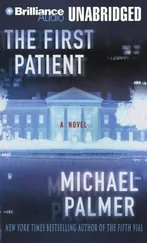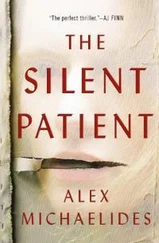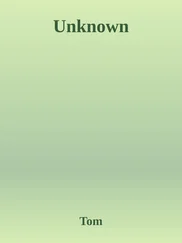Michael Ondaatje - The English Patient
Здесь есть возможность читать онлайн «Michael Ondaatje - The English Patient» весь текст электронной книги совершенно бесплатно (целиком полную версию без сокращений). В некоторых случаях можно слушать аудио, скачать через торрент в формате fb2 и присутствует краткое содержание. Жанр: Старинная литература, на русском языке. Описание произведения, (предисловие) а так же отзывы посетителей доступны на портале библиотеки ЛибКат.
- Название:The English Patient
- Автор:
- Жанр:
- Год:неизвестен
- ISBN:нет данных
- Рейтинг книги:4 / 5. Голосов: 1
-
Избранное:Добавить в избранное
- Отзывы:
-
Ваша оценка:
- 80
- 1
- 2
- 3
- 4
- 5
The English Patient: краткое содержание, описание и аннотация
Предлагаем к чтению аннотацию, описание, краткое содержание или предисловие (зависит от того, что написал сам автор книги «The English Patient»). Если вы не нашли необходимую информацию о книге — напишите в комментариях, мы постараемся отыскать её.
The English Patient — читать онлайн бесплатно полную книгу (весь текст) целиком
Ниже представлен текст книги, разбитый по страницам. Система сохранения места последней прочитанной страницы, позволяет с удобством читать онлайн бесплатно книгу «The English Patient», без необходимости каждый раз заново искать на чём Вы остановились. Поставьте закладку, и сможете в любой момент перейти на страницу, на которой закончили чтение.
Интервал:
Закладка:
What he had discovered the night before held true. He had survived only through luck. There was no possible way to defuse such a bomb in situ without just blowing it up. He drew and wrote out everything he knew on the large blueprint sheet. At the bottom he wrote: Drawn by desire of Lord Suffolk, by his student Lieutenant Kirpal Singh, 10 May 1941 .
He worked flat-out, crazily, after Suffolk’s death. Bombs were altering fast, with new techniques and devices. He was barracked in Regent’s Park with Lieutenant Blackler and three other specialists, working on solutions, blueprinting each new bomb as it came in.
In twelve days, working at the Directorate of Scientific Research, they came up with the answer. Ignore the fuze entirely. Ignore the first principle, which until then was “defuse the bomb.” It was brilliant. They were all laughing and applauding and hugging each other in the officers’ mess. They didn’t have a clue what the alternative was, but they knew in the abstract they were right. The problem would not be solved by embracing it. That was Lieutenant Blackler’s line. “If you are in a room with a problem don’t talk to it.” An offhand remark. Singh came towards him and held the statement from another angle. “Then we don’t touch the fuze at all.”
Once they came up with that, someone worked out the solution in a week. A steam sterilizer. One could cut a hole into the main case of a bomb, and then the main explosive could be emulsified by an injection of steam and drained away. That solved that for the time being. But by then he was on a ship to Italy.
“There is always yellow chalk scribbled on the side of bombs. Have you noticed that? Just as there was yellow chalk scribbled onto our bodies when we lined up in the Lahore courtyard.
“There was a line of us shuffling forward slowly from the street into the medical building and out into the courtyard as we enlisted. We were signing up. A doctor cleared or rejected our bodies with his instruments, explored our necks with his hands. The tongs slid out of Dettol and picked up parts of our skin.
“Those accepted filled up the courtyard. The coded results written onto our skin with yellow chalk. Later, in the lineup, after a brief interview, an Indian officer chalked more yellow onto the slates tied around our necks. Our weight, age, district, standard of education, dental condition and what unit we were best suited for.
“I did not feel insulted by this. I am sure my brother would have been, would have walked in fury over to the well, hauled up the bucket, and washed the chalk markings away. I was not like him. Though I loved him. Admired him. I had this side to my nature which saw reason in all things. I was the one who had an earnest and serious air at school, which he would imitate and mock. You understand, of course, I was far less serious than he was, it was just that I hated confrontation. It didn’t stop me doing whatever I wished or doing things the way I wanted to. Quite early on I had discovered the overlooked space open to those of us with a silent life. I didn’t argue with the policeman who said I couldn’t cycle over a certain bridge or through a specific gate in the fort—I just stood there, still, until I was invisible, and then I went through. Like a cricket. Like a hidden cup of water. You understand? That is what my brother’s public battles taught me.
“But to me my brother was always the hero in the family. I was in the slipstream of his status as firebrand. I witnessed his exhaustion that came after each protest, his body gearing up to respond to this insult or that law. He broke the tradition of our family and refused, in spite of being the oldest brother, to join the army. He refused to agree to any situation where the English had power. So they dragged him into their jails. In the Lahore Central Prison. Later the Jatnagar jail. Lying back on his cot at night, his arm raised within plaster, broken by his friends to protect him, to stop him trying to escape. In jail he became serene and devious. More like me. He was not insulted when he heard I had signed up to replace him in the enlistment, no longer to be a doctor, he just laughed and sent a message through our father for me to be careful. He would never go to war against me or what I did. He was confident that I had the trick of survival, of being able to hide in silent places.”
He is sitting on the counter in the kitchen talking with Hana. Caravaggio breezes through it on his way out, heavy ropes swathed over his shoulders, which are his own personal business, as he says when anyone asks him. He drags them behind him and as he goes out the door says, “The English patient wants to see you, boyo.”
“Okay, boyo.” The sapper hops off the counter, his Indian accent slipping over into the false Welsh of Caravaggio.
“My father had a bird, a small swift I think, that he kept beside him, as essential to his comfort as a pair of spectacles or a glass of water during a meal. In the house, even if he just was entering his bedroom he carried it with him. When he went to work the small cage hung off the bicycle’s handlebars.”
“Is your father still alive?”
“Oh, yes. I think. I’ve not had letters for some time. And it is likely that my brother is still in jail.”
He keeps remembering one thing. He is in the white horse. He feels hot on the chalk hill, the white dust of it swirling up all around him. He works on the contraption, which is quite straightforward, but for the first time he is working alone. Miss Morden sits twenty yards above him, higher up the slope, taking notes on what he is doing. He knows that down and across the valley Lord Suffolk is watching through the glasses.
He works slowly. The chalk dust lifts, then settles on everything, his hands, the contraption, so he has to blow it off the fuze caps and wires continually to see the details. It is hot in the tunic. He keeps putting his sweating wrists behind himself to wipe them on the back of his shirt. All the loose and removed parts fill the various pockets across his chest. He is tired, checking things repetitively. He hears Miss Morden’s voice. “Kip?” “Yes.” “Stop what you’re doing for a while, I’m coming down.” “You’d better not, Miss Morden.” “Of course I can.” He does up the buttons on his various vest pockets and lays a cloth over the bomb; she clambers down into the white horse awkwardly and then sits next to him and opens up her satchel. She douses a lace handkerchief with the contents of a small bottle of eau de cologne and passes it to him. “Wipe your face with this. Lord Suffolk uses it to refresh himself.” He takes it tentatively and at her suggestion dabs his forehead and neck and wrists. She unscrews the Thermos and pours each of them some tea. She unwraps oil paper and brings out strips of Kipling cake.
She seems to be in no hurry to go back up the slope, back to safety. And it would seem rude to remind her that she should return. She simply talks about the wretched heat and the fact that at least they have booked rooms in town with baths attached, which they can all look forward to. She begins a rambling story about how she met Lord Suffolk. Not a word about the bomb beside them. He had been slowing down, the way one, half asleep, continually rereads the same paragraph, trying to find a connection between sentences. She has pulled him out of the vortex of the problem. She packs up her satchel carefully, lays a hand on his right shoulder and returns to her position on the blanket above the Westbury horse. She leaves him some sunglasses, but he cannot see clearly enough through them so he lays them aside. Then he goes back to work. The scent of eau de cologne. He remembers he had smelled it once as a child. He had a fever and someone had brushed it onto his body.
Читать дальшеИнтервал:
Закладка:
Похожие книги на «The English Patient»
Представляем Вашему вниманию похожие книги на «The English Patient» списком для выбора. Мы отобрали схожую по названию и смыслу литературу в надежде предоставить читателям больше вариантов отыскать новые, интересные, ещё непрочитанные произведения.
Обсуждение, отзывы о книге «The English Patient» и просто собственные мнения читателей. Оставьте ваши комментарии, напишите, что Вы думаете о произведении, его смысле или главных героях. Укажите что конкретно понравилось, а что нет, и почему Вы так считаете.












